Search
Did you mean: Cimon?
Summary 
Loading AI-generated summary based on World History Encyclopedia articles ...
Search Results

Image
Ammon
Amen or Ammon, from a bronze in the Louvre. Height 22·04 inches.
From "A history of art in ancient Egypt, Vol. I (of 2)" (1883).
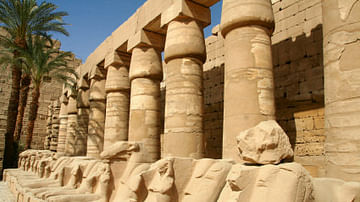
Definition
Ammon (Deity)
Ammon is the name of a Libyan deity and his oracle in the desert. It became famous after Alexander the Great made a detour to consult the god. The modern name is Siwa. Oracle at Siwa Ammon was a Libyan deity, whose oracle was situated...
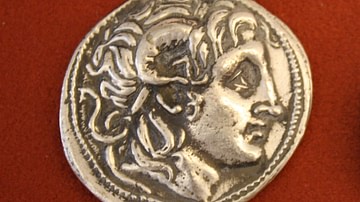
Image
Alexander as Ammon-Zeus
Silver tetradrachm from Thrace, reign of Lysimachus, 323-281 BCE. Head of Alexander as Ammon-Zeus. (Alpha Bank Numismatics Museum, Corfu)
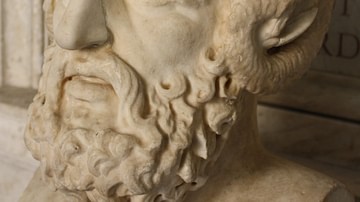
Image
Zeus Ammon
A marble Herme of Zeus Ammon. Roman copy of a Hellenistic original. (Capitoline Museums, Rome)
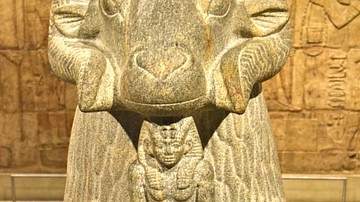
Definition
Amun
Amun (also Amon, Ammon, Amen, Amun-Ra) is the ancient Egyptian god of the sun and air. He is one of the most important gods of ancient Egypt who rose to prominence at Thebes at the beginning of the period of the New Kingdom (c. 1570-1069...
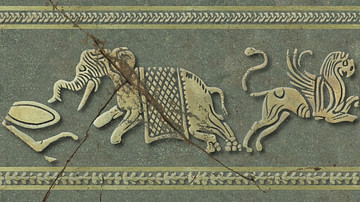
Article
Elephants in Hellenistic History & Art
Elephants were thought of as fierce and frightful monsters in antiquity, very real though rarely seen until the Hellenistic period. They were deployed on the battlefield to strike terror into the enemy, however, since fear was considered...

Article
Alexander the Great as a God
The age-old concept of the “divine right of kings” allowed that a country's ruler received his or her power or authority from God. However, few, if any, were delusional enough to actually believe themselves to be a god. An exception to this...
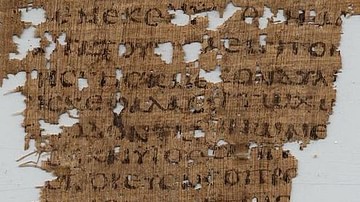
Definition
Book of Amos
The Book of Amos is a prophetic book of the Hebrew Bible largely dating to the 8th century BCE and considered to be scripture by modern-day Jews and Christians. The work chronicles the visions that the ancient author of this book believed...

Definition
Ancient Jordan
Jordan is a country in the Near East bordered by Israel, Syria, Iraq, and Saudi Arabia. The country's name comes from the Arabic Al Urdun, referencing a fortified site but also meaning "prominence", though various sources also claim the name...
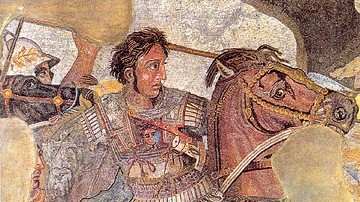
Definition
Alexander the Great
Alexander III of Macedon, better known as Alexander the Great (l. 21 July 356 BCE – 10 or 11 June 323 BCE, r. 336-323 BCE), was the son of King Philip II of Macedon (r. 359-336 BCE) who became king upon his father's death in 336 BCE and then...